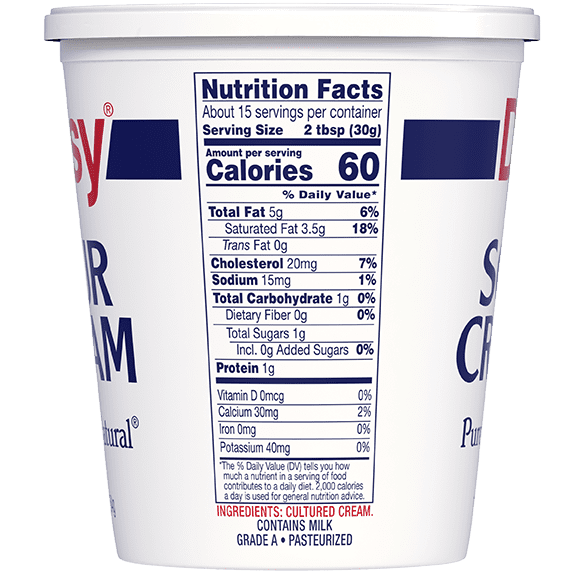Understanding Oil Weight: A Comprehensive Guide to Choosing the Right Grade for Your Engine in 2025
As the automotive industry continues to evolve, it is vital to comprehend the significance of oil weight and its role in engine performance. In 2025, selecting the right oil for your engine involves understanding various parameters such as viscosity, density, and API gravity. This guide aims to demystify oil weight, providing insights into its properties, measurement standards, and how it affects performance. With the correct information, you can make informed decisions that will optimize your engine's longevity and efficiency.
Understanding oil weight is essential for several reasons. Not only does it impact the overall performance and efficiency of your vehicle, but it also plays a crucial role in energy output and emissions. Knowing how to navigate oil classifications can greatly influence operational costs in the long term. This article intends to take you through the intricacies of oil weight, covering everything from its importance in engine performance to how to calculate and convert oil weight effectively.
Key takeaways from this article will include:
- Defining oil weight and its importance in vehicle maintenance.
- Understanding the factors that influence oil weight.
- Learning the methodologies for measuring oil weight.
- Exploring the various grades of oil and their applications in engines.
- Grasping the relationship between oil weight and environmental standards.

Essential Guide to Oil Properties and Their Measurement
The first step in understanding oil weight is to become familiar with its fundamental properties and measurement techniques. The weight of oil is often correlated with its specific gravity, viscosity, and density. Each of these characteristics plays a vital role in determining how oil will perform in an engine.
Defining Oil Weight and its Importance
Oil weight refers to the oil's density and viscosity, which affect its ability to lubricate engine components efficiently. The specific gravity of oil indicates whether it will perform optimally under various operating conditions. For example, thicker oil will not flow as easily as a lighter oil at low temperatures, which is crucial during cold starts. Thus, selecting the right oil weight ensures engines operate effectively, prolonging their lifespan and enhancing efficiency.
Understanding Viscosity of Oil
Viscosity measures a fluid's resistance to flow and is critical in determining how oil behaves at different temperatures. The higher the viscosity, the thicker the oil. API standards classify oil grades based on their viscosity, denoting them with numbers, e.g., 5W-30. The "W" stands for winter, indicating suitability for cold weather. Therefore, knowing how to interpret viscosity ratings is essential when choosing the correct oil for your engine.
Measuring Oil Density
Oil density is another significant factor influencing oil weight. Density measures the mass of oil per unit volume and varies with temperature. Technicians often use oil density charts to determine how oil characteristics change in different conditions, which will influence engine performance. Common oil density measurement tools can provide accurate assessments to guide best practices in oil selection.
In the next section, we will delve deeper into the various oil grades available and how they align with specific engine requirements, building on the fundamentals we've discussed.
Choosing the Right Oil Grade for Your Engine
With a firm grasp of oil properties, understanding oil grades becomes the next critical step. Different engine designs and applications require varying specifications of oil, necessitating careful selection.
Types of Oil Grades and Their Applications
Oil grades are categorized based on viscosity and intended use. For instance, synthetic oils generally offer better performance in extreme temperatures compared to conventional oils. Familiarity with the oil standard measurements is necessary for choosing the appropriate type for an engine, whether it's for a high-performance sports car, a family vehicle, or heavy machinery.
Importance of API Gravity
API gravity serves as an indicator of oil density, with higher readings signifying lighter oils. Different engines may require oils that align with specific API gravity ratings, affecting fuel efficiency and emissions. Knowledge of API standards will provide further insights into maintaining engine health in compliance with regulations.
Oil Weight and Engine Performance
The weight of the oil impacts how well it lubricates engine components, thereby influencing fuel efficiency and overall engine performance. Thicker oils may provide better protection in high-stress environments, while lighter oils may facilitate improved fuel economy. Understanding this relationship is key to optimizing engine function.
Equipped with an understanding of oil grades and their applications, the next section will explore various oil weight measurement tools and the testing methods you can use to ensure you're selecting the best oil for your needs.
Using Measurement Tools for Accurate Oil Weight Assessment
Choosing oil is not just about comparison shopping; it’s about accurately measuring and interpreting oil characteristics to select the best option. Different measurement tools and techniques provide valuable data on oil weight.
Oil Weight Measurement Techniques
Precision in measuring oil weight is crucial for ensuring optimal performance. Various techniques exist, such as using oil weight calculators and density measurement tools. These devices help in determining how fluctuations in temperature and other factors influence oil behavior, enabling a more informed selection process.
Oil Weight Conversion Factors
Understanding oil weight conversion is important when working with different units of measurement, especially in international trade. For example, one must frequently convert between gallons, liters, and barrels to maintain accuracy in oil distribution and shipping logistics. Implementing consistent oil weight standards mitigates risk in oil trade.
Effects of Temperature on Oil Weight
Temperature significantly affects oil weight due to changes in its density and viscosity. Oil that flows easily at high temperatures can become considerably thicker in colder climates, impacting the engine’s performance during cold starts. Awareness of this influence can guide users towards the correct oil type suitable for their specific operating environment.
Having explored the measurement tools and methods for oil weight assessment, we will now discuss the implications of oil weight in various sectors, particularly concerning its relevance to environmental standards and economic considerations.
The Impact of Oil Weight in Environmental and Economic Contexts
The oil industry plays a large role in the economy and environmental policies. Oil weight is a critical factor in both contexts.
Oil Weight Regulations and Standards
Regulatory frameworks dictate required oil weights and formulations to meet environmental standards. For instance, eco-friendly oils often have lighter weights and lower emissions. Understanding these regulations can dramatically influence purchasing decisions and compliance with environmental policies.
Oil Weight and Quality Control
Quality assurance mechanisms rely heavily on oil weight assessments to maintain product integrity. Imprecise measurements can lead to flaws in products that may result in catastrophic failures in machinery and engines. Thus, implementing rigorous oil testing methods is essential for maintaining industry standards.
Economic Considerations in Oil Trade Measurements
The economics of oil weigh heavily on its pricing metrics. Crude oil prices fluctuate based on supply and demand dynamics, with weight playing a crucial role in determining shipping costs and logistics. By analyzing oil weight trends, one can uncover insights critical to making informed investment and purchasing decisions.

Common Questions About Oil Weight
What is the Importance of Oil Weight in Engines?
The oil weight is crucial for optimal engine lubrication, fuel economy, and overall performance. Using the correct oil weight can prolong engine life and enhance efficiency.
How Can I Measure Oil Weight Accurately?
Accurate measures can be obtained using various tools like oil weight calculators, density charts, and temperature adjustment metrics to evaluate the effect of environment on oil weight.
What Factors Should Influence My Choice of Oil Weight?
When choosing oil weight, consider engine specifications, temperature ranges, and intended use of the vehicle. These factors help in determining the viscosity and density of the oil needed.
Are There Environmental Regulations for Oil Weight?
Yes, various regulations dictate the standards for oil weight and formulations to minimize environmental impacts. Understanding these can guide your oil choices safely.
How Does Oil Weight Affect Fuel Efficiency?
Thicker oils can create more resistance, possibly hinder fuel efficiency. Choosing the correct oil weight can lead to improved performance and lower fuel consumption.
